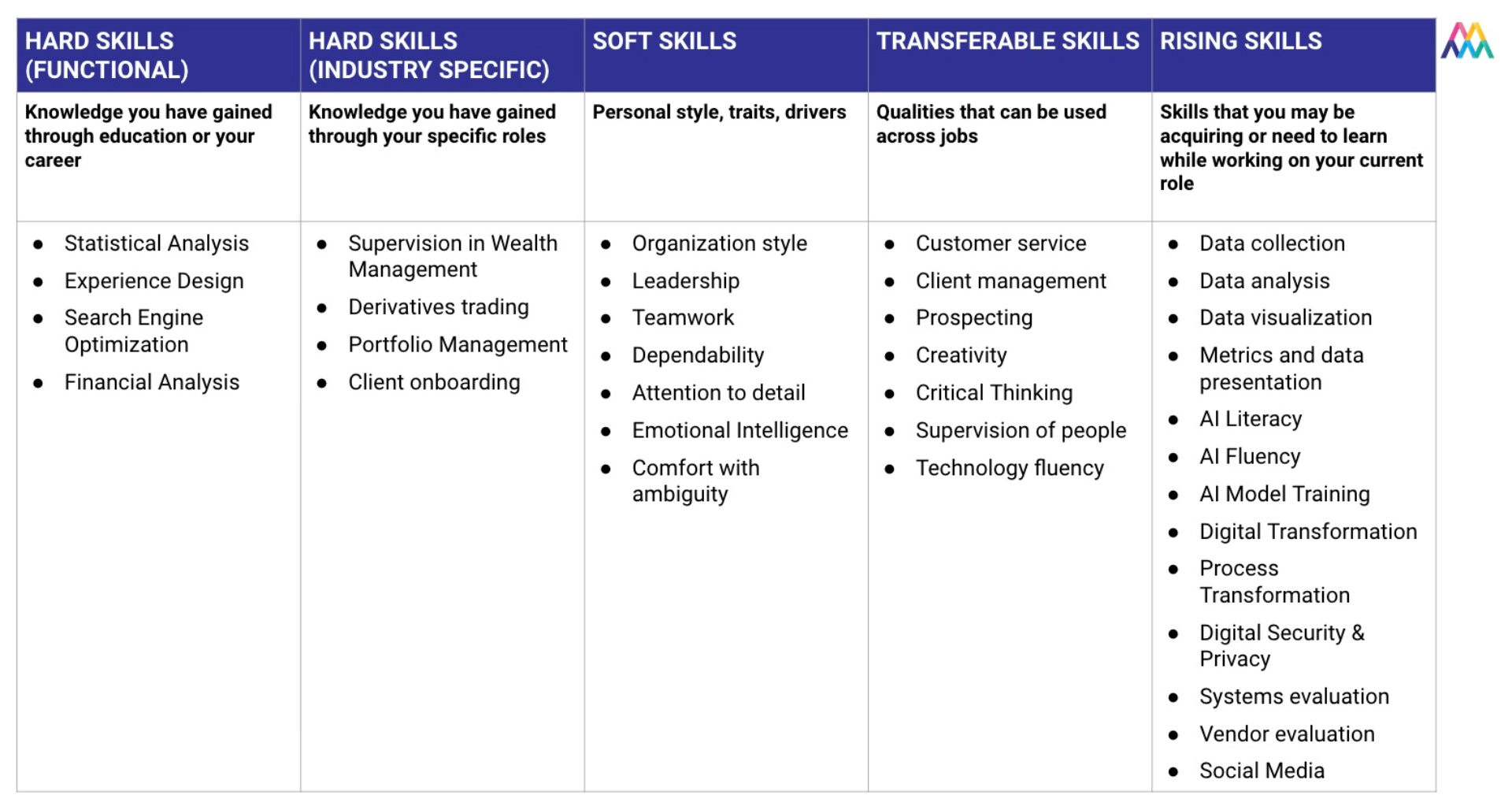What is skills based hiring and what does it mean for applicants?
What is skills-based hiring?
When companies say they practice “skills-based” hiring, what they’re trying to say is that they prioritize competency over credentials. That means that this company is not judging you based on what school you went to, what companies you’ve worked for, or who you know, but rather what skills you bring to the table. A traditional job description prioritizes things like minimum years of experience and educational requirements while a skills-based job description prioritizes the skills that are required to do a particular job.
This benefits candidates for a few reasons, particularly because it widens the potential talent pool of potential applicants. Instead of only looking at candidates who meet certain criteria like having a degree or certain number of years of experience, companies look at candidates who have the skills required to be successful in the job.
Things to know about skills
Skills can be roughly divided into four categories: hard skills, soft skills, transferable skills, and rising skills. Here’s how those are defined:
- Hard skills - These are industry specific and functional skills that are needed to do the job you’re applying for.
- Soft skills - Soft skills are behaviors and personality traits that characterize how you interact with others.
- Transferable skills - These are skills that translate from one job to another, these are especially important if you are switching industries or functions.
- Rising skills - Rising skills are emergent skills that become “necessary” skills at a rapid pace. The average job has seen 30% of its skills replaced during the past decade. It is often not intuitive to think of such skills as “core” to your strengths, but they are important to highlight.

Applying for jobs at skills-based organizations.
What should I do if I’m applying to a company that practices skills-based hiring?
The most important thing for you to do is take an inventory of all your skills across these four categories. Go through your resume and your job responsibilities as well as outside sources like job descriptions for the job you have and write down all of the skills you come across. Organize these into those four categories: hard skills, soft skills, transferable skills, and rising skills. Do this same exercise for the jobs you want and you’ll be able to see how many of the skills you match and where you have room for growth.
AI PROMPTS TO HELP YOU IDENTIFY SKILLS:
Leveraging generative AI technology like ChatGPT is a great way to save yourself some time as you do this skills analysis for your resume. You can download our ChatGPT job search prompt cheat sheet here. Here are a few prompts specific to crafting a good skills-based job application.
- Can you extract the skills I need from this job description that I will paste below? Please categorize these skills into hard skills, soft skills, and transferable skills.
- Which skills that you listed above are specific to financial services?
- What skills do I need to become a [INSERT JOB TITLE] for a [Bank/Wealth Manager/Startup/etc.]?
- I am a [LEVEL + JOB] in [INDUSTRY] in [FUNCTION]. I aspire to become the [NEXT LEVEL]. Look at recent job descriptions from [TARGET COMPANIES] for [ASPIRATIONAL JOB TITLE] and find skills I need to have to align with their jobs.
The most important thing when applying for a job at a skills-based organization is that you include all of these skills on your resume. Make sure that your capabilities are front and center on your resume and reflect the job description you’re applying for well.
Wondering exactly how to apply to a job at a company practicing skills-based hiring? Check out our blog here.
Privacy Policy Terms Of Use




